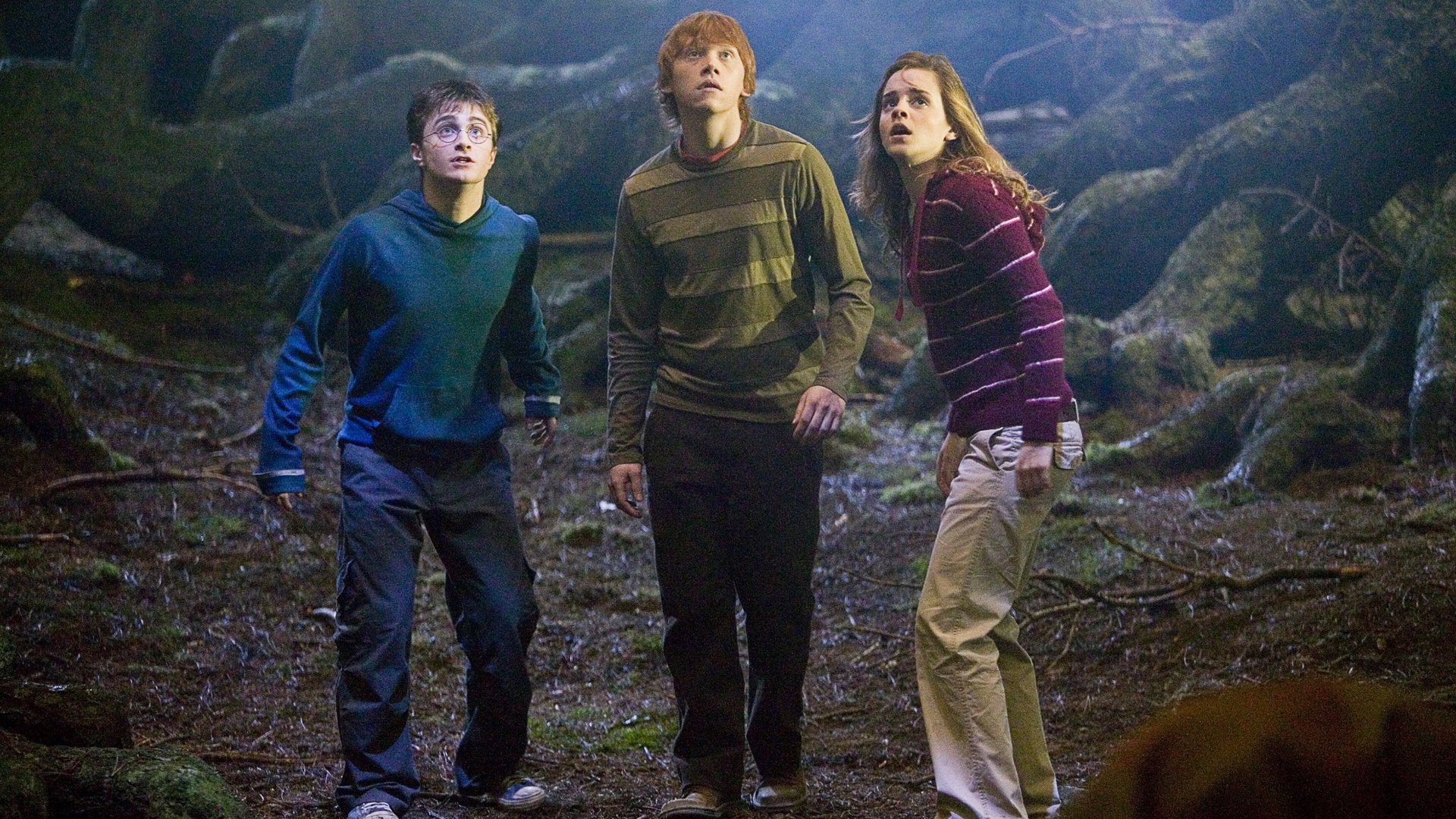Harry Potter fans wrote the happy ending that J.K. Rowling regrets she couldn’t
A slew of muckraking Harry Potter journalism in the last few weeks shows us that even the strongest of characters have trouble standing the test of time and love. In an interview with the entertainment magazine, Wonderland, author J.K. Rowling concedes that Hermione should have fallen in love with Harry, not Ron. And in a blog post from science fiction and fantasy blog Tor.com, we discover that many of key plot points that make us love Ron in the books are actually given to Hermione in the movies. Among the Muggles who live for Harry Potter, mayhem ensued.


A slew of muckraking Harry Potter journalism in the last few weeks shows us that even the strongest of characters have trouble standing the test of time and love. In an interview with the entertainment magazine, Wonderland, author J.K. Rowling concedes that Hermione should have fallen in love with Harry, not Ron. And in a blog post from science fiction and fantasy blog Tor.com, we discover that many of key plot points that make us love Ron in the books are actually given to Hermione in the movies. Among the Muggles who live for Harry Potter, mayhem ensued.
But there is a universe where a book need not be set in stone—fan fiction.
Already, the genre has given rise to titans in the publishing world like E.L. James, whose Twilight fan fiction turned into the uber-bestselling 50 Shades series, as well as hundreds of thousands more who will probably only clock a handful of eyeballs on their work. Yet they continue to create anyway. There are at least 650,000 different Harry Potter spoofs on fanfiction.net alone. This is one of the biggest fan fiction sites—but still only one of hundreds. Here’s one fan’s rendition in 2010 of how Harry and Hermione’s love story might begin:
“Nothing, and no one, is more important to me than you are.” Harry held his breath while he waited for her response to this declaration. Hermione frowned and gnawed on her lower lip, and he could almost see the wheels turning in her head as she processed this information. Once finished, she glanced up shyly.
“Are you sure this isn’t some really obtuse way for you to ask me out?”
Harry stared at her. That hadn’t been what he’d meant, but … “Erm, maybe?”
Her expression reflected her puzzlement at the unexpected response. “What’s that supposed to mean?” she demanded.
“It depends on what you think of the idea,” he mumbled, dropping his gaze and hoping desperately that he hadn’t just alienated his closest friend.
Hermione smiled and stepped up close. Taking his head in her hands she lifted it until they locked eyes. “I think that’s a simply splendid idea, Mr. Potter.” She then proceeded to confirm her decision with an enthusiastic kiss.
Some of the most recognizable authors of our day—besides James, there’s Cassandra Clare, Neil Gaiman, and John Scalzi—are all fan fiction writers who initially or eventually penned their own original works. In some cases, their spoofs spawned their successful careers.
As early as 1967, and probably before that, fans have been taking the worlds they love and building on them. Lev Grossman, author of the phenomenal The Magicians series, expertly chronicled fan fiction’s rise in a 2011 piece. In an email, Grossman says that it makes him “unspeakably happy that people care enough about the world and the characters inThe Magicians to want to tell more stories with them.”
However, not everyone is like Grossman; one constant problem with these creators is who the work truly belongs to—the author or the fan. Rowling, for example, had her lawyers complain about work that shed Harry Potter in a sexual light, and Orson Scott Card is on record berating students about not writing fan fiction. It’s a sign of the times that both eventually folded and now look upon the work with favor. Today, websites like Wattpad, Goodreads, Scribd, and even Reddit are all deeply entrenched in the fan fic game, and some are profiting. Even Amazon is trying to take advantage of the sonic boom in fan fiction publishing with Kindle Worlds, which will pay royalties to both the author of the fan fiction and the works original creator. And, of course, Amazon.
What’s becoming clear is that writers and readers desire more of the worlds that they love, and they love these worlds so much that they sometimes feel they can improve upon them. This may be a point of contention with the authors of these genesis worlds, but it’s also good to remember that imitation is the sincerest form of flattery.